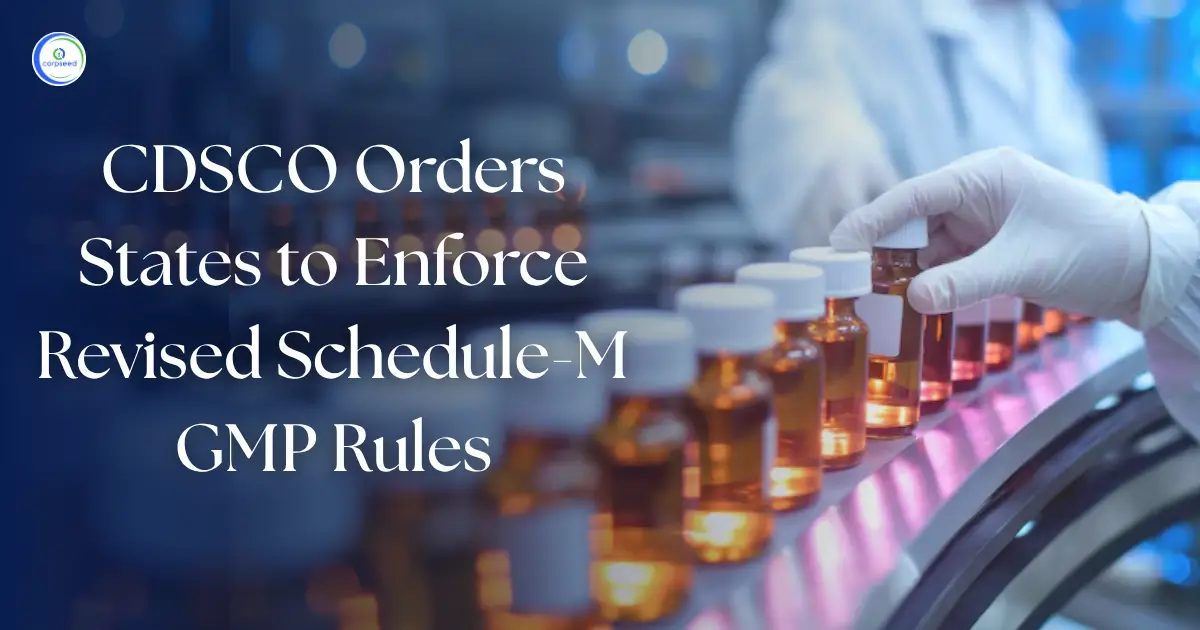The Central Drugs Standard Control Organization (CDSCO) has directed all state and Union Territory drug controllers to start immediate inspections of pharmaceutical plants. The move confirms strict adherence to the revised Schedule M Good Manufacturing Practice (GMP) rules.
Table of Contents
The Drugs Controller General of India (DCGI) instructed that inspections must begin without delay, particularly for facilities that have not applied for an extension. Non-compliant manufacturers will face strong implementation actions under the revised norms.
Action against Non-Compliant Manufacturers
The directive clearly states that inspections and penalties must be initiated immediately for units that fail to comply with the new rules. State authorities have also been told to submit monthly compliance reports to CDSCO.
These reports will cover inspection findings, identified gaps, and corrective actions. This step reinforces the regulatory monitoring framework and aims to ensure constant quality across India’s drug manufacturing network.
Focus on Quality after Cough Syrup Tragedy
The decision follows the recent tragedy, including contaminated cough syrup, which caused the deaths of at least 24 children. Inspections later revealed major violations at Sresan Pharma’s facility.
Regulators found over 300 non-compliance issues, presenting serious gaps in compliance with Schedule M norms. Another case in Chhattisgarh also revealed a false sample of Besto Cof syrup during regular testing.
Push for Upgradation and Accountability
For manufacturers who submitted upgrade plans before May, inspections will begin in January. Meanwhile, smaller manufacturers that failed to apply for extensions must adhere immediately.
Industry data signifies that nearly 80% of India’s 10,500 drug units are MSMEs. However, only a few have upgraded their plants to meet the latest GMP standards.
Strengthening India’s Pharma Oversight
Now, the revised Schedule M rules apply mainly to large pharmaceutical firms. Smaller units with annual turnovers below Rs. 250 crore are still exempt from the new standards.
However, CDSCO’s latest directive shows that wider enforcement may soon follow. This move marks a strong step toward reinstating public confidence and ensuring safer, high-quality medicines.
The CDSCO’s order demonstrates India’s renewed focus on manufacturing quality. With immediate inspections and strict enforcement, the government aims to ensure that every medicine produced in India fulfills global safety standards.
This portion of the site is for informational purposes only. The content is not legal advice. The statements and opinions are the expression of author, not corpseed, and have not been evaluated by corpseed for accuracy, completeness, or changes in the law.

